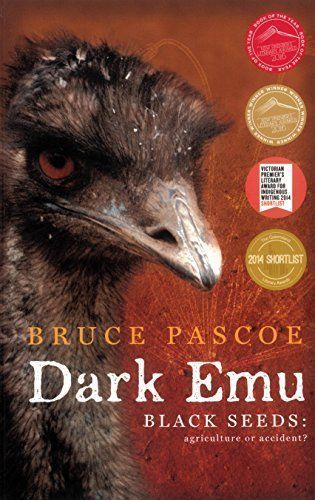
Dark Emu Black Seeds : Agriculture Or Accident?
Dark Emu puts forward an argument for a reconsideration of the hunter-gatherer tag for pre-colonial Aboriginal Australians. The evidence insists that Aboriginal people right across the continent were using domesticated plants, sowing, harvesting, irrigating and storing - behaviors inconsistent with the hunter-gatherer tag. Gerritsen and Gammage in their latest books support this premise but Pascoe takes this further and challenges the hunter-gatherer tag as a convenient lie. Almost all the evidence comes from the records and diaries of the Australian explorers, impeccable sources.
Reviews
jen@seastruck
Jamieson@jamiesonk
Eva Bailey@evabails
Amanda Wells@amandawells
Amanda Wells@amandawells
Tori@libraryoftori
Jessica Smith@jayeless
Andrew Canion@canion
Lysh (She/Her)@teachreadreview
Jane Krauss@ladyjane95
Bulkan Evcimen@bulkan
David Whipps@dwhipps
Bulkan Evcimen@bulkan
Juliet@lulijet
Ed Macovaz@edmacovaz
Shreya Rai @shreyoo
Kahli Scott@kahliscott
Georgie K@georgiek
Mark Porter-Smith@markportersmith
James Maskell@jmaskell
Iris Emily@desirepath
Claudia Gulbransen-Diaz@cgd
Jasmine Lawrence@jas__reads
Sarah Hamilton@sarahh9